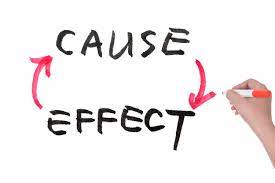
The Transformative Effects of Technology on Society
The Effects of Technology on Society
Technology has become an integral part of modern society, influencing every aspect of our lives. From communication to healthcare, education to entertainment, the impact of technology is profound and far-reaching.
One of the most significant effects of technology on society is the way it has transformed communication. With the rise of social media platforms and instant messaging apps, people can connect with each other across the globe in real-time. This has revolutionised how we interact with one another, breaking down barriers and creating new opportunities for collaboration and understanding.
In the field of healthcare, technology has led to remarkable advancements in diagnosis, treatment, and patient care. From telemedicine services to wearable health monitoring devices, technology has made healthcare more accessible and efficient than ever before.
Education has also been greatly impacted by technology. Online learning platforms and digital resources have made education more flexible and personalised, allowing students to learn at their own pace and in their own way. Technology has also opened up new avenues for research and innovation in various fields.
However, the effects of technology on society are not all positive. The rise of automation and artificial intelligence has raised concerns about job displacement and economic inequality. There are also growing concerns about data privacy and security in an increasingly digital world.
It is clear that technology will continue to shape our society in profound ways. As we navigate the opportunities and challenges that come with technological advancements, it is important to consider how we can harness the power of technology for the greater good of humanity.
Synonyms for ‘Effect’: Exploring Alternative Terms
Deciphering the Meaning of ‘Effects’
Alternative Terms: What Else Can We Call an Effect?
5. The Definition
- What are effects give an example?
- What is another word for effect?
- What is the mean by effects?
- What is another word effect?
- What does effect mean?
- What is affect and effect examples?
- What is the meaning of effect in research?
What are effects give an example?
Effects refer to the consequences or outcomes that result from a particular action, event, or phenomenon. An example of effects can be seen in the context of climate change. The burning of fossil fuels releases greenhouse gases into the atmosphere, leading to global warming and changes in weather patterns. The effects of climate change include rising sea levels, more frequent and severe natural disasters, and disruptions to ecosystems and biodiversity. These effects highlight the importance of understanding how our actions can have far-reaching consequences on the environment and society as a whole.
What is another word for effect?
Another word for “effect” is “impact.” When we talk about the effects of something, we are referring to the influence, consequence, or result it has on a particular situation or individual. The term “impact” is often used interchangeably with “effect” to describe the changes or outcomes that occur as a result of a specific action or event.
What is the mean by effects?
Effects refer to the outcomes or consequences that result from a specific action, event, or phenomenon. In various contexts, effects can manifest in different forms, such as changes in behaviour, physical alterations, emotional responses, or impacts on a system or environment. Understanding the effects of something involves analysing how it influences or interacts with other elements to produce a particular result. By studying and evaluating these effects, we can gain insights into the implications and significance of various factors in different situations.
What is another word effect?
Effect is a versatile word in the English language, often used to describe the result or outcome of a particular action or event. Another word that can be used synonymously with effect is “impact.” Just like effect, impact conveys the idea of a change or influence that is caused by something else. Both words are commonly used in various contexts to highlight the consequences or significance of a particular cause, making them interchangeable in many situations.
What does effect mean?
The term “effect” refers to the result or outcome that is produced by a particular action, event, or cause. In essence, it signifies the impact or consequence that arises as a direct result of something else. Effects can be both tangible and intangible, ranging from physical changes to emotional responses. Understanding the concept of effects is crucial in analysing how various factors influence different situations and outcomes in our daily lives and broader contexts.
What is affect and effect examples?
A common question that arises is the difference between “affect” and “effect” and how they are used in sentences. In grammar, “affect” is typically used as a verb to show influence or change, while “effect” is commonly used as a noun to indicate the result or consequence of an action. For example, “The rainy weather affected my mood” demonstrates how something (the rainy weather) influenced a person’s mood. On the other hand, “The new policy had a positive effect on employee morale” illustrates how an action (the new policy) resulted in a specific outcome (positive impact on morale). Understanding the distinction between these two words is essential for clear and effective communication in writing.
What is the meaning of effect in research?
In the context of research, the term “effect” refers to the measurable and observable outcome or result of a specific intervention, treatment, or variable manipulation within a study. Effects in research are crucial for understanding the impact of certain factors on the variables being studied. Researchers often analyse and interpret these effects to draw conclusions about causal relationships, make predictions, or test hypotheses. By identifying and interpreting effects in research, scholars can gain insights into how different variables interact and influence each other within a given study setting.
